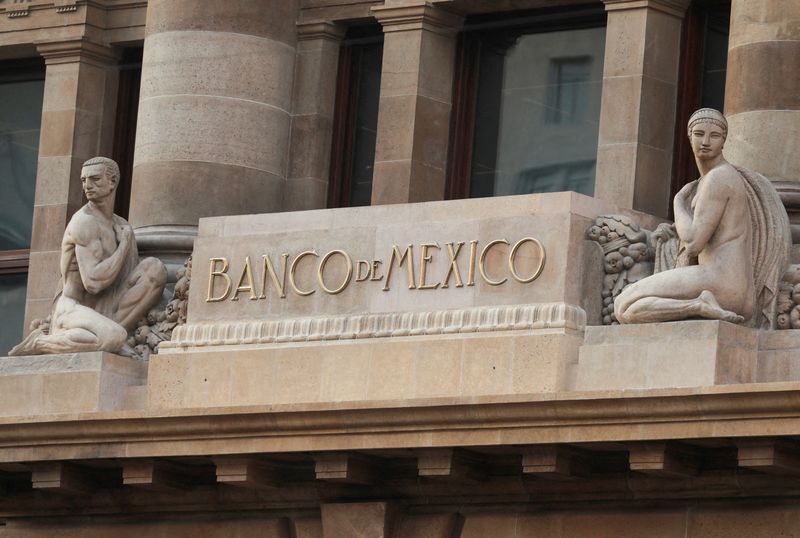By Brendan O'Boyle
MEXICO CITY (Reuters) -Mexico's central bank on Wednesday expressed confidence in the country's financial system despite the "notable weakness" of Latin America's second-largest economy and risks from market volatility and potential trade conflicts.
In its biannual financial stability report, the Bank of Mexico credited robust institutions for the system's stability, noting its "solid and resilient" position and capital and liquidity levels above regulatory minimums.
Mexican markets have experienced considerable volatility in the year's second half, amid elections in Mexico and the U.S., its top trading partner. U.S. President-elect Donald Trump has promised to levy a 25% across-the-board tariff on Mexican imports.
Uncertainty over a slew of constitutional overhauls in Mexico also contributed to a weakened local currency. Still, Mexican markets have managed to behave in a "relatively orderly" manner, the report said.
"While the vulnerabilities and risks identified for financial stability are generally considered limited, unexpected or severe shocks could affect its proper functioning," Banxico, as the central bank is known, noted in the report.
Even if limited, risks to the financial system could come from a rise in geopolitical tensions or trade conflicts, the report said. It also saw a risk in possible further weakening of the domestic economy, which the central bank currently forecasts will grow just 1.8% in 2024 and 1.2% in 2025.
Trump's threatened tariffs have stoked uncertainty over whether Mexico will continue to benefit from nearshoring, a trend in which multinational corporations locate manufacturing capacity in Mexico, closer to the U.S. market, rather than in Asia.
Banxico Governor Victoria Rodriguez on Wednesday said the economic phenomenon "is underway," and the results of the central bank's survey of companies underscore the "relevancy" of U.S.-Mexico economic integration.

"The relocation of companies has also boosted bank credit," Rodriguez said, adding that the process is a gradual one.
"These investments take time to materialize, so we would expect this process to continue both throughout this year and the coming years."

